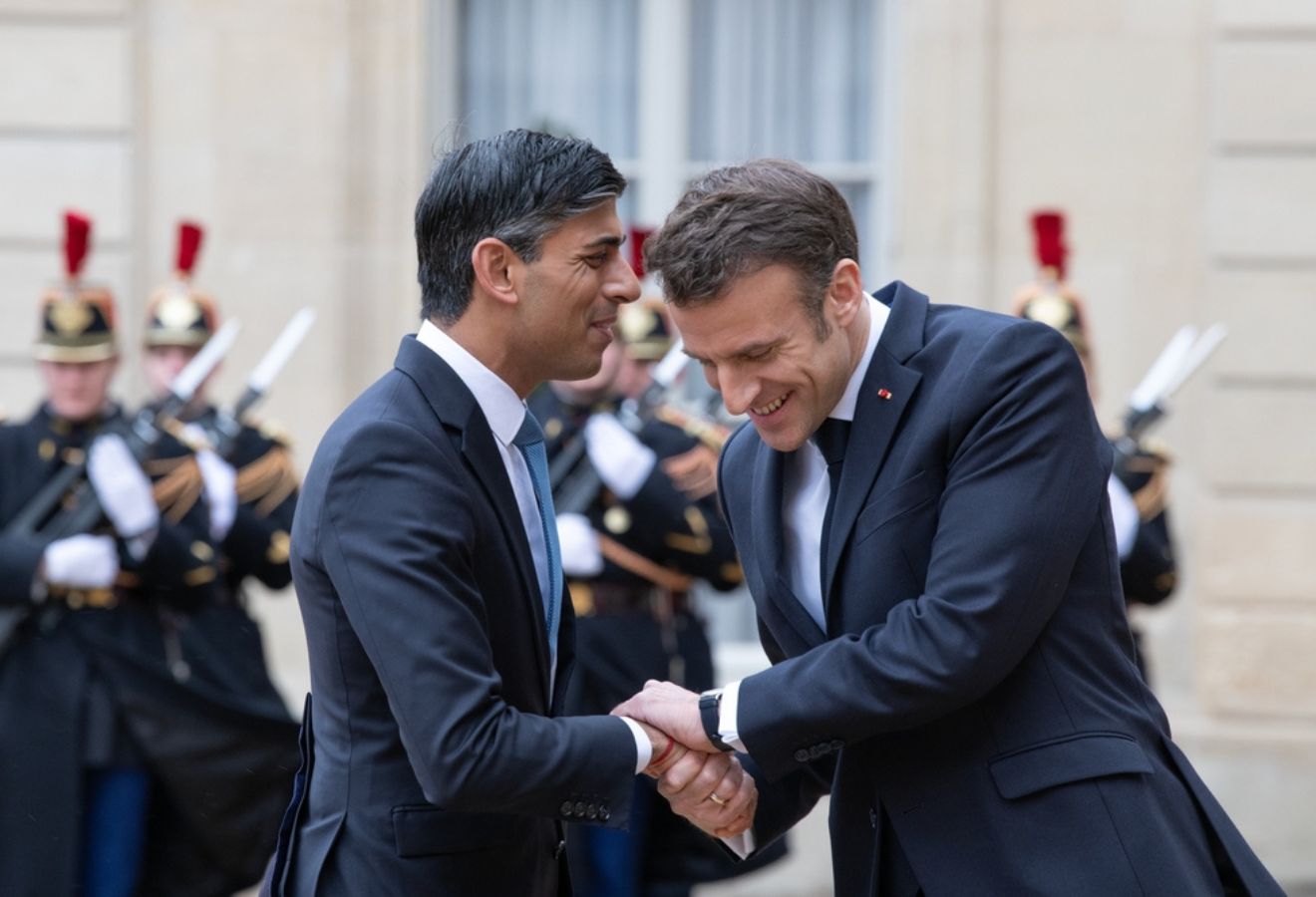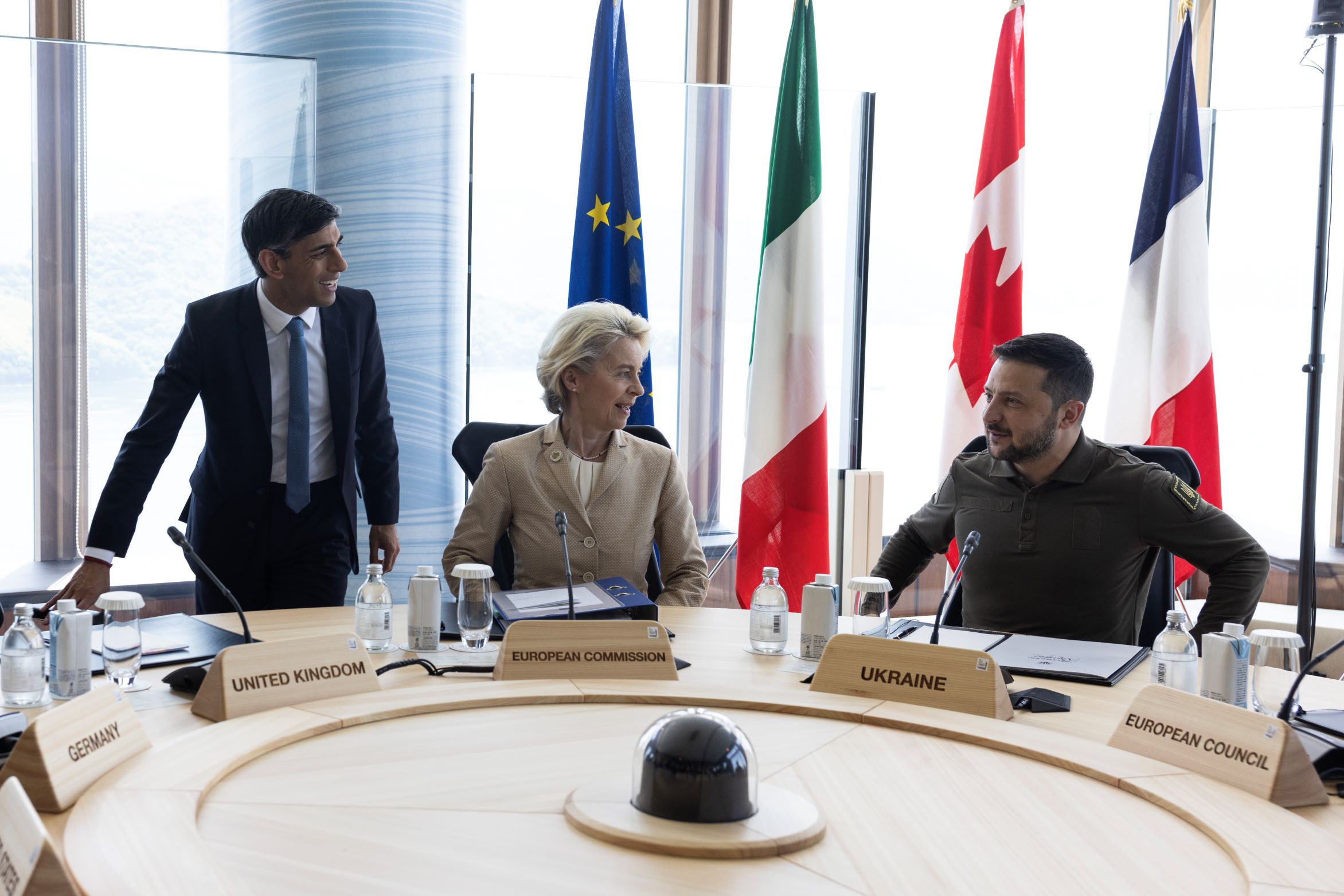The UK should continue pursuing its policy of calling for restraint on Israel’s response to Iran, while at the same time impose further economic sanctions on Iran and tackle its proxies, like the Houthis. But at the same time, British foreign policy should not forget the bigger threat to its security: Russia’s potential victory in Ukraine, argues Peter Watkins.
Anything written about the current situation in the Middle East risks being overtaken by events as soon as it is published. The events of the last weeks and months have been startling. The longstanding confrontation between Israel and Iran (and its proxies) has come out of the shadows. And its precarious balance between provocation and restraint, which provided a measure of mutual deterrence, has crumbled with Hamas’s attack on Israel on 7 October 2023; Israel’s attack on Iranian diplomatic premises in Damascus on 1 April 2024; and Iran’s first direct military attack on Israel on 14 April 2024. On 19 April, there was a limited Israeli reprisal against Iran. Given its scale, Iran’s unprecedented 14 April attack on Israel was not a proportionate response to Israel’s earlier move – although it does appear to have been designed to be a political and military spectacle inflicting limited damage. And all this has been in the context of wider and long-running disruptive activity in the region by groups funded and supported by Iran, including the Houthis in Yemen.
The UK’s policy has – rightly – been to help Israel to repel the 14 April attack; press Israel to increase aid access to Gaza; and, along with the US and other allies, urge Israel to show restraint.
Iran seems to have felt impelled to raise the stakes dramatically through the character of its response to the 1 April attack in order to restore deterrence – emphasising simultaneously that it now saw the matter as “concluded”. But it could also, as other commentators have noted, have been seeking to create a new normal of direct attacks on Israel from Iran itself. So Israel felt that it had to respond – to restore Israel’s deterrence posture. But, with the current regional dynamics, this response is likely to provoke another Iranian attack – and there appear to be more rungs on Iran’s escalatory ladder than Israel’s.
The UK’s policy has – rightly – been to help (using British military assets) Israel to repel the 14 April attack; press Israel to increase aid access to Gaza (to address the humanitarian crisis there and reduce Israel’s diplomatic isolation); and, along with the US and other allies, urge Israel to show restraint. This appeal has obviously not been fully heeded – although it may have influenced the scale and form of Israel’s latest move.
The UK has a – possibly unmatched – combination of military and civil assets and links across the region. If they haven’t been already, these need to be mobilised – quickly.
Despite the risks, no response by Israel to the 14 April attack would not have been right if we want to contain a slide into a new pattern of coercive behaviour by states. The Israel/Iran contest is not occurring in a vacuum. In Europe, Russia is launching drone and missile attacks on civilian infrastructure in Ukraine with impunity – Western economic sanctions have not deterred or appreciably limited its efforts and, at the moment, Western military supplies are insufficient to help Ukraine repel the attacks. And others are watching in the Asia-Pacific and Latin America. Given this wider context, we should not leave the response to Israel alone – and not just because, left to itself (and in a febrile domestic political environment), Israel could badly miscalibrate its moves.
A collective endeavour is needed, preferably led by the US, involving not only the G7 countries (and the EU) but also other states – in the region and beyond – that have no desire to see Iran set a new paradigm for coercion. Further economic sanctions on Iran should be part of the package. Their relative lack of success so far – whether with respect to Iran or Russia – does not make them irrelevant: G7 and other governments and the EU should have learned plenty of lessons about sanctions enforcement over the past couple of years. Military steps could also be taken. One of Iran’s proxies, the Houthis in Yemen, are not only attacking international shipping in the Red Sea but also participated in the 14 April attack. The current military efforts to deter Houthi activities could step up a gear. Other options will also be available to all the states involved. They should be on their guard too – and, if possible, seek to pre-empt – attempts by Iran to exert wider political and economic pressure in response, such as interdicting shipping in the Gulf. The military presence there should be reinforced.
The UK’s priority is and must remain the security of the Euro-Atlantic area – and that is threatened most by Russian aggression.
The UK’s policy should be to contribute to this collective endeavour – with diplomatic engagement, military assets and economic/financial measures and expertise. The UK’s voice alone will have limited impact. But the UK has a – possibly unmatched – combination of military and civil assets and links across the region. If they haven’t been already, these need to be mobilised – quickly. And they’ll need to be sustained – this crisis will not pass any time soon. That will require difficult decisions about resources over the coming months.
Amidst all this, the UK cannot lose sight of the bigger picture. An all-out conflict between Israel and Iran would be deeply destabilising and almost certainly lead to a significant economic shock. But the UK’s priority is and must remain the security of the Euro-Atlantic area – and that is threatened most by Russian aggression. Russian success in Ukraine (with help from Iran) would compromise Euro-Atlantic security – and could only exacerbate the tensions in the Middle East. Supporting Ukraine must remain the priority. And all these conflicts – and potential ones elsewhere – remind us of the many vulnerabilities of our economy and society. Reducing the impact of conflicts overseas, and enhancing the UK’s ability to contribute meaningfully to international efforts to prevent or contain those conflicts, requires building resilience at home.
All articles posted on this blog give the views of the author(s), and not the position of LSE British Politics and Policy, nor of the London School of Economics and Political Science.
Image credit: Netpixi on Shutterstock







